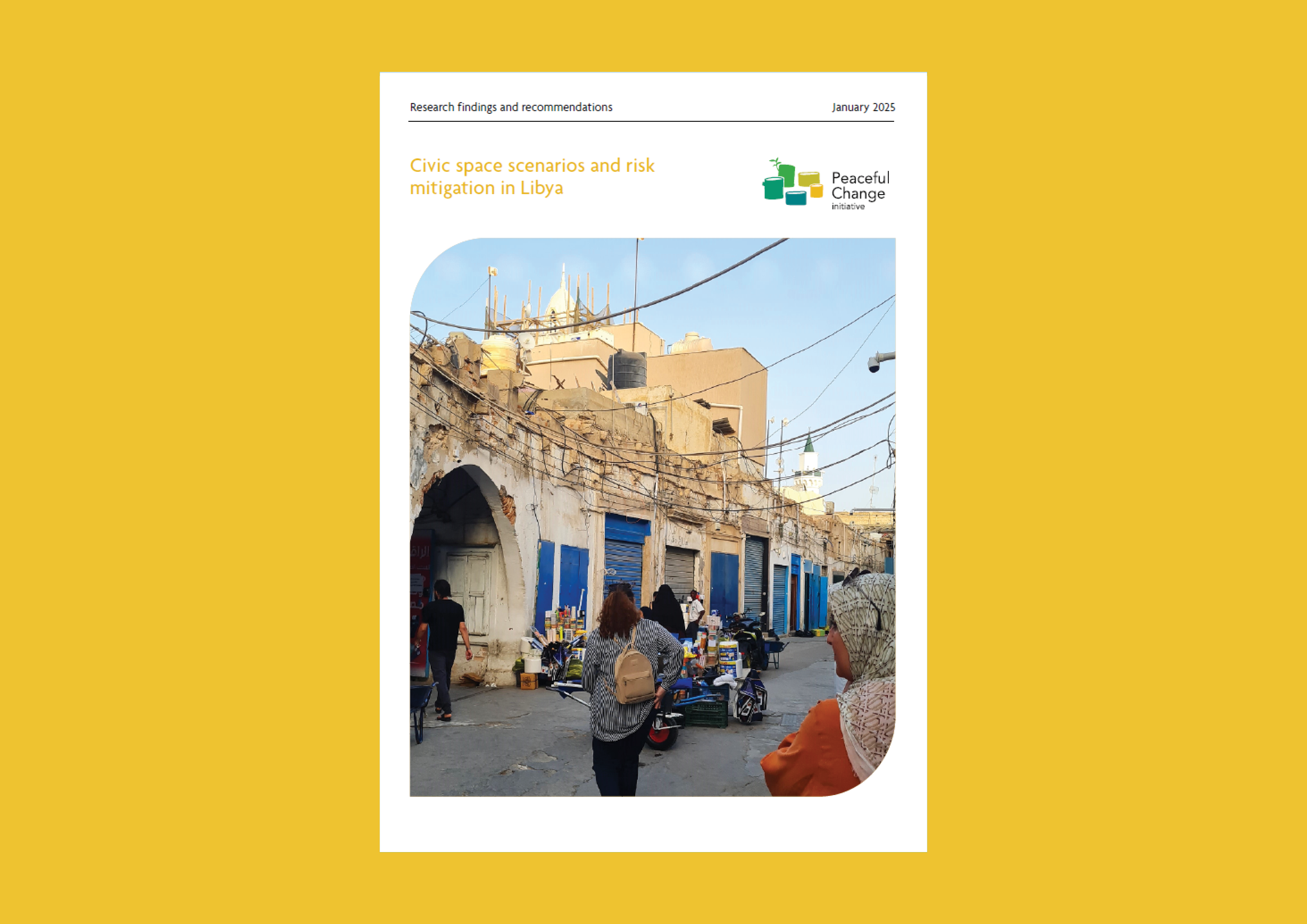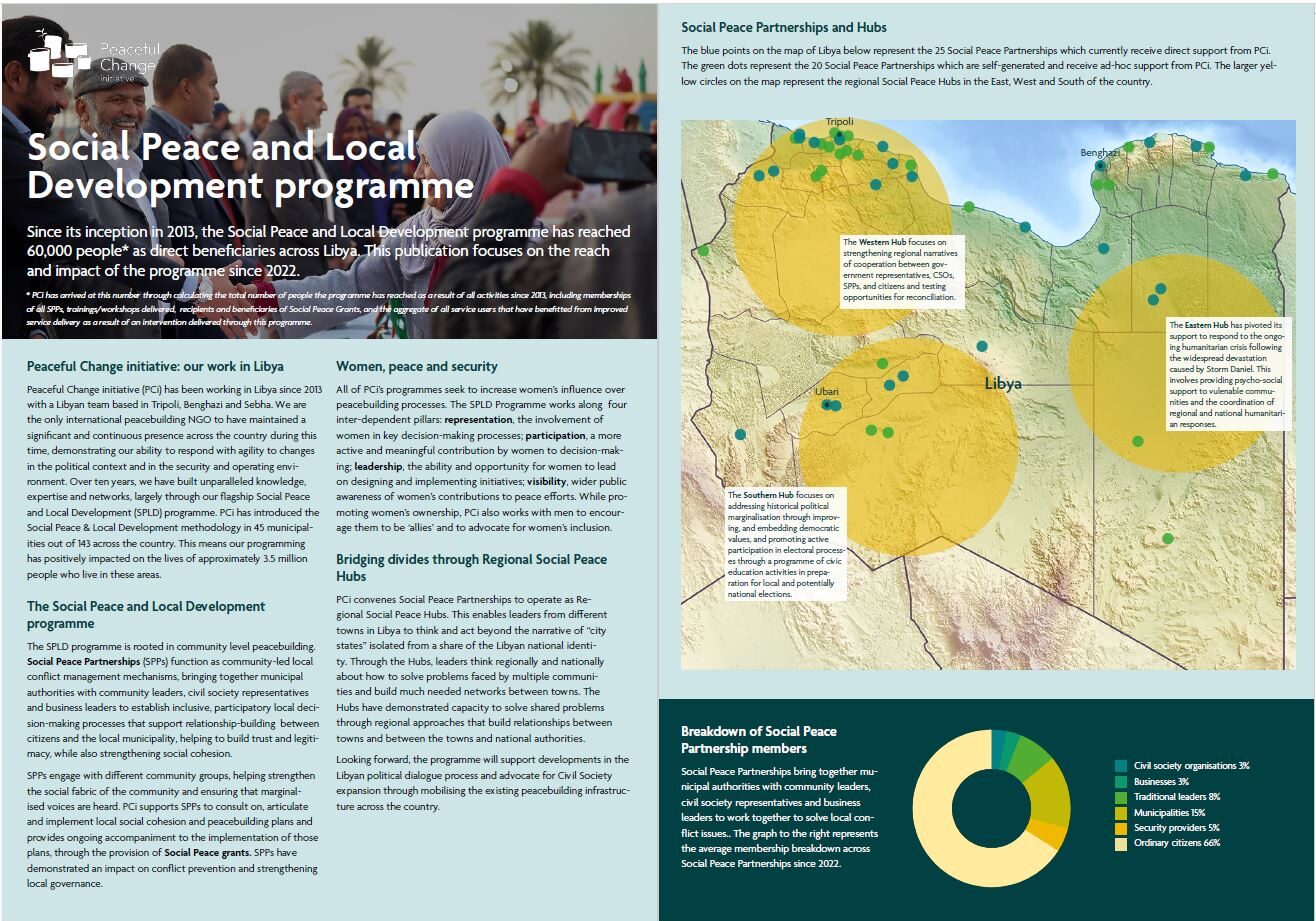Why we support community-led peacebuilding
To be effective and sustainable, peacebuilding efforts need to be led by people in their own communities and countries. Local actors are best placed to understand the conflict dynamics that affect their communities and which approaches are most likely to build lasting peace.
We support activists and organisations with practical tools and knowledge for peacebuilding, such as conflict management and mediation skills. Our partners adapt, expand and change the skills and knowledge we share with them to fit their own needs and circumstances. This helps to ensure they can be effective advocates for peace in their community, now and in the future.
Many communities we work with have successfully managed high-risk conflicts and avoided violence, even when formal peace processes have failed. In Libya, for example, we support community-led peacebuilding initiatives which provide a platform for local leaders to identify and address issues that may lead to violence. These have been instrumental in preventing outbreaks of violent conflict and maintaining social peace.
A closer look at our community-led peacebuilding work
Here are some of the ways our community-led peacebuilding programming is helping to create lasting peace:
Social Peace Partnerships in Libya
In Libya, Social Peace Partnerships function as community-led local conflict management mechanisms. They bring together municipal authorities with community leaders, civil society representatives and business leaders to establish inclusive, participatory local decision-making processes. This supports relationship-building between citizens and the local municipality, helping to build trust and legitimacy, while also strengthening social cohesion.
PCi supports Social Peace Partnerships to consult on, articulate and implement local social cohesion and peacebuilding plans and provides ongoing accompaniment to the implementation of those plans, through the provision of Social Peace grants. Partnerships have demonstrated an impact on conflict prevention and strengthening local governance.
Dialogue initiative groups in Ukraine
PCi worked in Ukraine, before Russia’s full-scale invasion in 2022, helping to embed dialogue facilitators in municipalities affected by the war in the Donbas and the annexation of Crimea. The groups helped social integration issues that local governments might ordinarily struggle to address if using just their own procedures and mechanisms. In some cases, the dialogue teams became fully integrated into the day-to-day work of the municipalities, allowing them to address more issues without overburdening their administrative mechanisms.
Supporting community peace resources in Syria
At the height of the war in Syria, PCi worked with Syrian organisations to train a network of community leaders in mediation and negotiation skills. This network became a crucial resource for communities during times of crisis, and potentially saved thousands of lives. For example, in Hama Province an extremist armed group had taken up position in a local school and parents worried it would be targeted by government air strikes. Local leaders, trained by PCi, persuaded them to leave the school, and the town, allowing children to safely resume their education.
Recent Publications

Civic space scenarios and risk mitigation in Libya
This paper highlights how international donors international donors who partner with Libyan CSOs can help protect and expand civic space

Solidarity statement for Syria
PCi stands in solidarity with our Syrian friends and colleagues as they delight in the removal of the Assad Regime

Impact report: Social Peace and Local Development programme
This publication showcases the impact and reach of our Social Peace and Local Development programme since 2022. The report highlights
